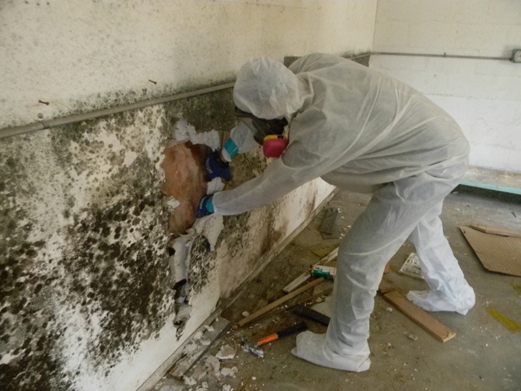As a commercial property owner in the Phoenix area, you have seen the market evolve rapidly. One issue consistently stands out as the biggest challenge in commercial property sales: high vacancy rates, particularly in the office sector. This problem, driven by post-COVID shifts in work patterns, creates significant hurdles for both sellers and buyers, impacting property values and transaction dynamics across Greater Phoenix, including Scottsdale and surrounding areas like Tempe and Mesa.
Blog
Welcome to the Phoenix AZ home inspection blog from Scottsdale Desert Inspections (SDI).
We are your trusted Arizona home inspector serving Scottsdale, Tempe, Mesa, and the greater Phoenix area. Dive into expert insights on real estate market trends (e.g., May 2025 updates with $470K medians), mold inspection tips, failed inspection costs ($3K-$30K repairs), and sewer line checks for older homes. Led by Tray Raymond, our posts empower buyers, sellers, and realtors with actionable advice—schedule your inspection today to avoid surprises in this dynamic market.
 As of May 8, 2025, the Phoenix, AZ real estate market is undergoing a significant shift, transitioning from a seller’s market to a more buyer-friendly landscape. If you are looking to buy, be sure the property is inspected.
As of May 8, 2025, the Phoenix, AZ real estate market is undergoing a significant shift, transitioning from a seller’s market to a more buyer-friendly landscape. If you are looking to buy, be sure the property is inspected.Here’s a detailed breakdown based on the latest available data:
Market Dynamics and Pricing Trends
The Phoenix housing market is currently described as "somewhat competitive," scoring 53 out of 100 on Redfin’s competitiveness index. The median sale price for homes in February 2025 was $470,000, reflecting a modest 3.5% year-over-year increase. However, this growth is slower than in previous years, and some sources report a decline, with average home values dropping 8.5% over the past year to $415,258, according to Zillow data from November 2024. Analyst Nick Gerli from Reventure App noted a 6.9% price drop from the June 2022 peak, warning of a potential 20% correction if inventory continues to rise and sales remain muted. This price correction follows a pandemic-era boom, where prices surged 53% in Phoenix between February 2020 and February 2025, outpacing the national average of 45%.Overall Market Trends
Phoenix’s commercial real estate (CRE) market is experiencing a dynamic surge, driven by strong population growth, economic diversification, and infrastructure investments. The Phoenix metro area, with a population exceeding 5 million, added nearly 50,000 new residents in 2023, ranking 8th for metro area population gains, which fuels demand for commercial properties. The city’s economic transformation, particularly in technology, manufacturing, and healthcare, has increased the need for office, industrial, and retail spaces. The cost of a failed home inspection can vary widely depending on the specific circumstances. To mitigate any problems, contact Tray Raymond to maximize your return.
The cost of a failed home inspection can vary widely depending on the specific circumstances. To mitigate any problems, contact Tray Raymond to maximize your return.
Here are some potential costs involved:
1. Negotiation Delays or Failed Sale
- Cost to Buyer: If the issues identified in the home inspection are significant enough (e.g., foundation problems, roof damage, or electrical issues), the buyer may decide to walk away from the deal. This can result in the loss of inspection fees (typically $300-$500) and any other non-refundable deposits (such as earnest money).
- Cost to Seller: If the inspection reveals major issues, the seller may have to reduce the price or pay for repairs to keep the sale moving forward. Sellers may also face the inconvenience and potential cost of re-listing the property.
2. Repair Costs
- Cost to Seller: A failed inspection may prompt the buyer to request significant repairs before proceeding with the sale. Depending on the issues identified, this can lead to substantial costs:
- Roof repairs: $5,000 to $10,000+
- Foundation issues: $3,000 to $30,000+
- Plumbing or electrical problems: $500 to $5,000+
- The seller might need to cover these expenses or negotiate a lower selling price.
3. Re-inspection Fees
Lower interest rates can have a significant impact on home buying in the Phoenix, AZ area, as they affect both affordability and demand. Here’s how lower interest rates could influence the local housing market:
1. Increased Affordability
- Lower Monthly Payments: A reduction in interest rates lowers the cost of borrowing, which directly reduces monthly mortgage payments. For example, on a $400,000 home, a drop in the interest rate from 6% to 4% could lower the monthly payment by several hundred dollars. This makes homeownership more affordable for buyers, even at higher home prices.
- Higher Purchasing Power: With lower interest rates, buyers may be able to afford a more expensive home within their budget, potentially moving up to a higher-priced property or purchasing in a more desirable neighborhood. This is especially important in Phoenix, where the real estate market has seen significant price increases in recent years.
2. Increased Demand
- Attracting More Buyers: Lower mortgage rates can stimulate demand by attracting first-time homebuyers, as well as move-up buyers, who may have been hesitant to purchase due to higher borrowing costs. Phoenix’s relatively strong job market and growing economy could make it an attractive place to buy, especially with more favorable financing terms.
- Refinancing Opportunities: In addition to new home buyers, lower rates would encourage current homeowners to refinance their existing mortgages, unlocking additional home equity for home improvements or other investments. While this doesn’t directly increase home buying, it can improve homeowners' financial flexibility and contribute to market activity.
3. Price Pressure and Potential for Increased Home Prices
- Potential Price Increases: As more buyers enter the market due to lower interest rates, competition for homes can drive up home prices. In Phoenix, where the housing market has seen rapid price growth in recent years, additional demand could push home prices even higher, especially in desirable areas like Scottsdale, Tempe, and downtown Phoenix.
- Bidding Wars: With lower rates making homes more affordable for a larger pool of buyers, the likelihood of bidding wars could increase, particularly for well-priced homes or those in high-demand neighborhoods. This can lead to homes selling for above asking price.
4. Short-Term vs. Long-Term Market Effects
- Short-Term Surge in Activity: Typically, lower interest rates lead to a short-term spike in home buying activity as buyers rush to lock in more favorable mortgage terms. In the short term, this could lead to higher sales volume and increased competition among buyers.
- Sustained Long-Term Benefits: If lower interest rates remain in place for a longer period, more buyers may continue to enter the market, especially in the wake of Phoenix’s continued population growth, which is driven by people relocating to the area for job opportunities, affordable living compared to other parts of the country, and a desirable climate.
5. Investor Activity
 The material used in a home's sewer system can significantly affect a home inspection. Schedule a home inspection so Scottsdale Desert Inspections can check your sewer system.
The material used in a home's sewer system can significantly affect a home inspection. Schedule a home inspection so Scottsdale Desert Inspections can check your sewer system. Here are some ways sewer pipe material impacts the inspection:
1. Durability and Longevity
As of September 2024, the Phoenix housing market is showing mixed signals. While home prices continue to rise, the pace of sales has slowed. The median sales price for homes in Phoenix is around $477,000, reflecting moderate growth compared to previous years. Inventory has increased by nearly 50% from last year, providing more options for buyers, but higher interest rates have made purchasing more expensive, causing some hesitancy among potential buyers.
Notably, areas like Scottsdale and the Southeast Valley have seen stronger price growth, with median prices in Scottsdale jumping 11% compared to last year. Overall, while prices are still rising, the market is experiencing fewer transactions and slower turnover in some areas
 Mold inspection around a hot water heater is a critical task for homeowners, as this area is particularly prone to moisture-related issues. Hot water heaters, by their nature, involve both heat and water, creating an environment where mold can thrive if conditions are not properly managed. Leaks, condensation, or even just the natural humidity in a utility room can lead to mold growth, which can be harmful to both the property and the health of its occupants. Regular inspections are essential to catch any early signs of mold and prevent larger problems.
Mold inspection around a hot water heater is a critical task for homeowners, as this area is particularly prone to moisture-related issues. Hot water heaters, by their nature, involve both heat and water, creating an environment where mold can thrive if conditions are not properly managed. Leaks, condensation, or even just the natural humidity in a utility room can lead to mold growth, which can be harmful to both the property and the health of its occupants. Regular inspections are essential to catch any early signs of mold and prevent larger problems.The first step in a mold inspection around a hot water heater is to visually examine the area. Look for any signs of water damage, such as discoloration on walls, floors, or the heater itself. Pay special attention to corners, the base of the heater, and any visible pipes. Even small amounts of water can lead to mold growth over time, so it’s important to catch any leaks or condensation early. In addition to visible mold, be on the lookout for musty odors, which can also indicate hidden mold.
A business real estate inspector in the Phoenix, AZ area specializes in evaluating commercial properties for compliance, safety, and structural integrity. SDI possess' in-depth knowledge of local building codes and regulations, ensuring thorough inspections of HVAC, electrical, plumbing, and structural systems. With keen attention to detail, they identify potential issues and provide clear, comprehensive reports. Effective communication and strong customer service skills is our strategy to make our service a value add.
We help explain findings and offer practical solutions. Their expertise ensures that clients make informed decisions about property investments, safeguarding their interests in the dynamic Phoenix real estate market. A business real estate inspector requires a combination of technical, analytical, and interpersonal skills to effectively evaluate commercial properties. Here are the key skills required:
-
Technical Knowledge:
- Understanding of building construction, systems, and materials.
- Familiarity with local, state, and federal building codes and regulations.
- Knowledge of HVAC, electrical, plumbing, and structural systems.
-
Attention to Detail:
- Ability to identify and document defects or issues in the property.
- Meticulous in checking every aspect of the property to ensure nothing is overlooked.
-
Analytical Skills:
- Capability to analyze findings and determine the significance of any issues.
- Proficiency in assessing the condition and functionality of various building systems.
-
Communication Skills:
- Strong verbal and written communication skills to effectively convey findings to clients.
- Ability to explain technical information in a clear and understandable manner.
-
Problem-Solving Skills:
Relocating your business to the Phoenix area can offer numerous opportunities for growth, access to a new market, and potential cost savings. However, it's essential to approach the move strategically to minimize disruptions and set the stage for a successful transition. Here are some strategies to consider:
The real estate business in Phoenix, Arizona, is dynamic and influenced by various factors such as population growth, economic conditions, housing demand, and market trends. If you are a realtor be sure to use our inspection service for your residential and commercial properties before listing and be proactive.
Here's an overview of the real estate business in Phoenix:
-
Population Growth: Phoenix has experienced significant population growth over the past several decades, driven by factors such as job opportunities, affordable housing, and a favorable climate. This population growth has contributed to increased demand for housing, both for home ownership and rental properties.
-
Housing Market: The housing market in Phoenix is characterized by fluctuations in home prices, inventory levels, and sales activity. Like many metropolitan areas, Phoenix experienced a housing market boom followed by a downturn during the Great Recession of the late 2000s. However, the market has since rebounded, with steady appreciation in home values and increased construction activity.
 Mold remediation can significantly improve your Phoenix area home sale in several ways, making it a critical step if mold is present before putting your home or business property on the market.
Mold remediation can significantly improve your Phoenix area home sale in several ways, making it a critical step if mold is present before putting your home or business property on the market.
Before you remediate you must inspect. Contact Scottsdale Desert Inspections to schedule a time for your mold inspection.
Here are a few ways your property will increase in value after we provide a mold inspection.
-
Increases Property Value: By eliminating mold, you enhance the overall condition of your home, which can positively affect its market value. Buyers are willing to pay more for homes that are in excellent condition without the need for immediate repairs.
-
Boosts Buyer Confidence: Addressing mold issues proactively demonstrates to potential buyers that the home has been well-maintained. This transparency can increase trust and confidence among buyers, making them more likely to consider purchasing.
-
Improves Home Aesthetics: Mold can cause unsightly stains and damage to surfaces. Remediation not only removes the mold but often involves repairing or replacing affected areas, thus improving the home's appearance and appeal to buyers.
-
Enhances Health Appeal: Mold can pose health risks, particularly to individuals with allergies or respiratory issues. By removing mold, you make your home safer and more appealing to health-conscious buyers or families with young children.
-
Reduces Negotiation Leverage: Buyers often use known issues like mold as leverage to negotiate a lower price. By remediating mold before listing your home, you eliminate this negotiation point, helping to maintain your asking price.
-
Faster Sale Process: Homes with no health or safety concerns, like mold, tend to sell faster. Buyers and their agents are more likely to move quickly on a property that doesn’t require remedial work, leading to a smoother and quicker sale process.
-
Compliance with Disclosure Laws: Many jurisdictions require sellers to disclose known issues, including mold, to potential buyers. By remediating mold before selling, you ensure compliance with these laws, reducing the risk of post-sale legal issues related to nondisclosure.
Investing in mold remediation before selling your home can enhance its value, appeal, and safety, making it a more attractive proposition to potential buyers and potentially leading to a quicker, more profitable sale.
Before you remediate you must inspect. Contact Scottsdale Desert Inspections to schedule a time for your mold inspection.
 Mold inspection plays a crucial role in maintaining a healthy living environment and can significantly impact the value of your home. Mold growth is not only unsightly but can also pose serious health risks to occupants and compromise the structural integrity of a building. By addressing mold issues proactively through inspection, homeowners can ensure their property remains safe, appealing, and retains its market value.
Mold inspection plays a crucial role in maintaining a healthy living environment and can significantly impact the value of your home. Mold growth is not only unsightly but can also pose serious health risks to occupants and compromise the structural integrity of a building. By addressing mold issues proactively through inspection, homeowners can ensure their property remains safe, appealing, and retains its market value.
Contact us to schedule a home mold inspection.
Here's how mold inspection can improve the value of your home:
1. Health and Safety Enhancement
Mold can cause a variety of health problems, ranging from allergic reactions and respiratory issues to more severe health conditions. By conducting regular mold inspections, homeowners can identify and mitigate potential health risks, ensuring a safer living environment. This commitment to health and safety is a significant value proposition for potential buyers.
2. Prevention of Costly Repairs
Mold can be indicative of larger issues, such as leaks or water damage, that may not be immediately visible. Early detection through mold inspections allows for prompt remediation, preventing more extensive and costly repairs down the line. Addressing these issues early on maintains the home's condition and appeal, positively affecting its value.
3. Enhancing Indoor Air Quality
Mold significantly affects indoor air quality, leading to musty odors and a less comfortable living environment. Mold inspections followed by proper remediation can eliminate these odors and improve air quality, making the home more inviting and valuable to potential buyers.
 In the arid climate of Phoenix, Arizona, the thought of mold may seem unlikely. However, mold can thrive even in the desert, particularly in homes with undetected leaks, poor ventilation, or after flooding. Understanding and managing mold is crucial for maintaining a healthy living environment. Here's how to effectively test for mold in your Phoenix home.
In the arid climate of Phoenix, Arizona, the thought of mold may seem unlikely. However, mold can thrive even in the desert, particularly in homes with undetected leaks, poor ventilation, or after flooding. Understanding and managing mold is crucial for maintaining a healthy living environment. Here's how to effectively test for mold in your Phoenix home.
Why Mold Testing is Essential
Mold in your home can lead to various health issues, ranging from allergies and respiratory problems to more severe conditions. In Phoenix, the combination of occasional heavy rains and high indoor air conditioning usage can create ideal conditions for mold growth in hidden spots. Regular mold testing helps detect these problems early, ensuring the health and safety of your household.
When to Test for Mold
Consider mold testing if you:
- Notice a musty smell.
- See visible mold growth.
- Have had recent water damage.
- Experience unexplained health issues like allergies or respiratory problems.
Professional vs. DIY Testing
While DIY mold test kits are available, they often provide limited information. Professional testing by Scottsdale Desert Inspection is more comprehensive, identifying the mold type and concentration, which is crucial for effective remediation. We use tools like infrared cameras to find hidden mold and moisture meters to detect dampness invisible to the naked eye.
 Mold inspection in a business environment offers several significant benefits. Mold can pose health risks and affect the integrity of a building, making it crucial to identify and address any mold issues promptly.
Mold inspection in a business environment offers several significant benefits. Mold can pose health risks and affect the integrity of a building, making it crucial to identify and address any mold issues promptly. Contact Scottsdale Desert Inspections for a free estimate.
Here are key benefits of a mold inspection for your business:
-
Health and Safety of Employees and Customers: Mold can cause various health problems, especially for individuals with allergies, asthma, or compromised immune systems. By identifying and addressing mold issues, a mold inspection helps ensure a healthier and safer environment for employees and customers.
-
Prevention of Structural Damage: Mold can cause significant damage to building materials over time, including wood rot and degradation of drywall. Early detection through a mold inspection can prevent extensive structural damage, saving the business considerable repair costs in the long run.
-
Maintaining Indoor Air Quality: Mold can significantly deteriorate indoor air quality. A mold inspection helps in identifying the presence of mold spores in the air, leading to actions that can improve the overall air quality within the business premises.
-
Legal and Regulatory Compliance: In some regions, there are health and safety regulations that businesses must comply with, which include maintaining a mold-free environment. Regular mold inspections ensure compliance with these regulations, helping to avoid legal issues and potential fines.
-
Enhancing Reputation and Customer Trust: Demonstrating a commitment to a healthy, safe, and clean environment can positively impact a business's reputation. Customers and clients are more likely to trust and feel comfortable in a business that takes proactive steps to ensure their well-being.
In this webinar, we discuss three myths associated with mold testing; mold testing is expensive, mold testing requires too much training, and mold testing takes too long.
We also discuss the Sporecyte advantage and the AI-powered mold revolution.
Stick around to get the knowledge and resources to improve your service offering and help you make more money.
Presented by Dylan McIntosh: Sporecyte Lab Director and Product Group Manager. With over eight years of experience in the industry, Dylan is a Certified Industrial Hygienist and a PAACB Certified Spore Analyst.
About SDI
Contact SDI
Blog
- The Biggest Commercial Property Sales Issue in the Phoenix, AZ Area 07 August 2025
- Phoenix Area Real Estate Market Update - May 2025 08 May 2025
- What is the status of the commercial property market in the Phoenix AZ area - in April 2025? 08 May 2025
- How much can a failed home inspection cost? 10 December 2024


